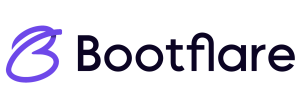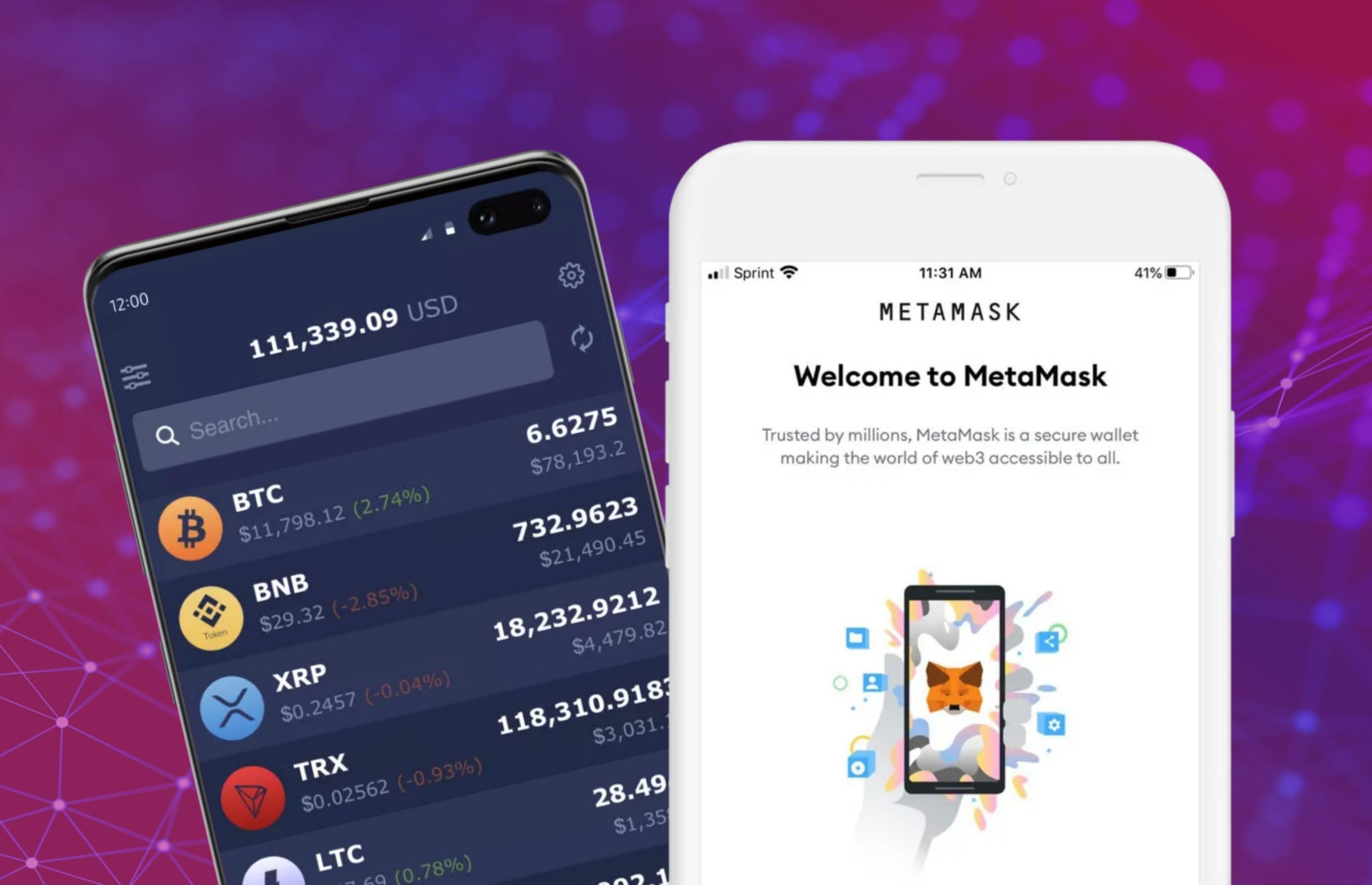Web3 wallets are critical components of the decentralized web because they allow users to securely manage their cryptocurrencies, communicate with decentralized apps (dApps), and preserve control over their digital assets. As Web3 technologies gain popularity, a variety of wallets have evolved, each with its own set of features, security measures, and usability. This article will examine and compare various Web3 wallets, providing insights into their essential features and assisting consumers in making informed decisions on how to choose a Web3 wallet
1.MetaMask:
MetaMask is one of the most well-known Web3 wallets, and it is extensively used to access Ethereum-based dApps. Its simple UI and strong security measures make it a popular choice among both novice and experienced users. Users can use MetaMask to build and manage numerous Ethereum wallets, effortlessly communicate with dApps, and securely store their private keys locally. Furthermore, MetaMask supports many Ethereum test networks, making it easier for developers and testers.
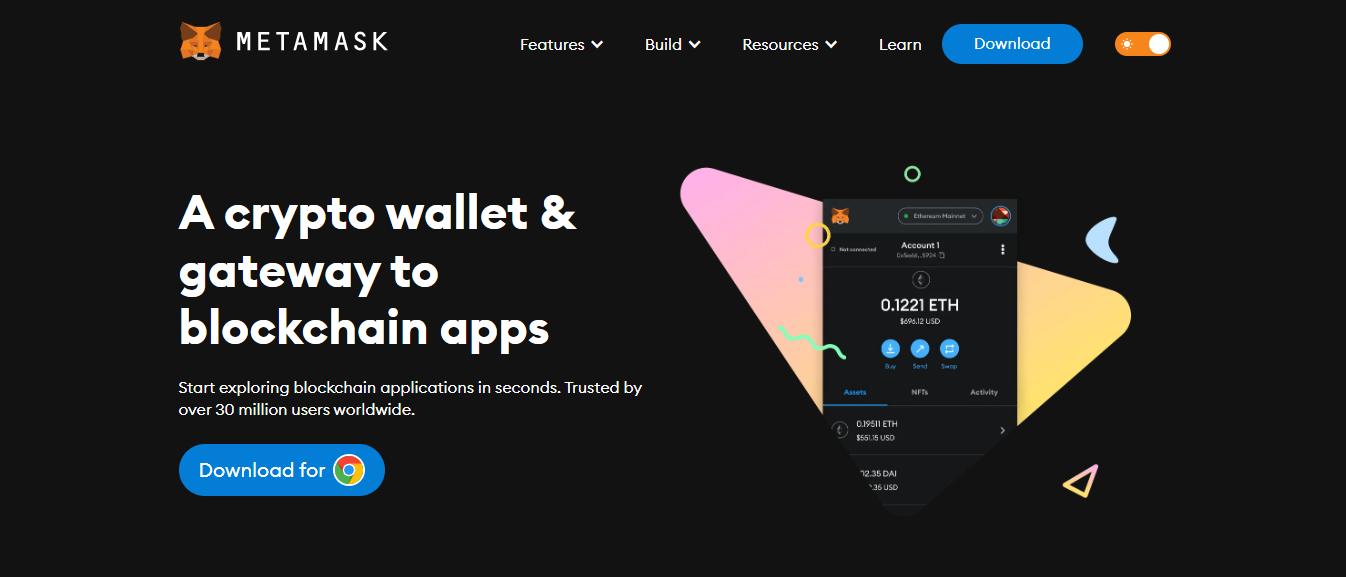
Security:
MetaMask has a robust security system, which includes encrypted data storage, phishing attack defense, and hardware wallet integration. Users can increase the security of their accounts by using multi-factor authentication (MFA). MetaMask is a great recommendation if you’re looking for how to store your cryptocurrencies safely.
Usability:
MetaMask’s user-friendly interface makes wallet creation, transaction management, and dApp engagement easier. It also includes a browser plugin that allows users to engage with decentralized applications directly from their browsers.
Get started with MetaMask: metamask.io
2. Trust Wallet:
Trust Wallet is a mobile-based Web3 wallet that offers users a secure and user-friendly experience. It works with a variety of blockchains, including Ethereum, Binance Smart Chain, and others, allowing users to manage several cryptocurrencies from a single wallet. Trust Wallet has grown in popularity as a result of its ease of use and broad compatibility with decentralized exchanges (DEXs).
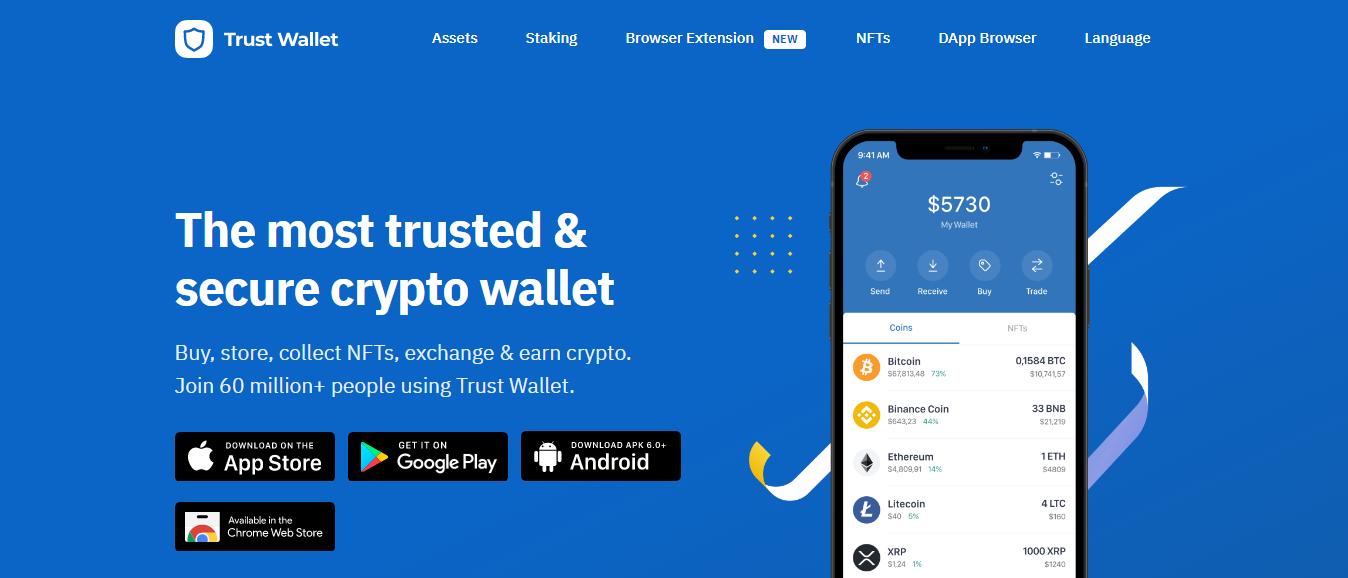
Security:
Trust Wallet has significant security features in place, such as a secure PIN and biometric authentication (fingerprint or face recognition). It also offers hardware wallet integration for increased security and defense against future attacks.
Usability:
The user-friendly UI of Trust Wallet, as well as its seamless connection with DEXs, making it an excellent solution for people wishing to trade cryptocurrencies directly from their wallets. It also includes a built-in dApp browser, allowing users to easily engage with decentralized applications.
Get started with Trust Wallet: trustwallet.com
3. Ledger Live:
Ledger Live is a hardware wallet manager that works with a variety of cryptocurrencies. It is intended to work in tandem with Ledger hardware wallets, offering users with a safe and simple way to manage their digital assets. Ledger Live supports a number of blockchains, including Bitcoin, Ethereum, and others, making it an appealing option for cryptocurrency enthusiasts.
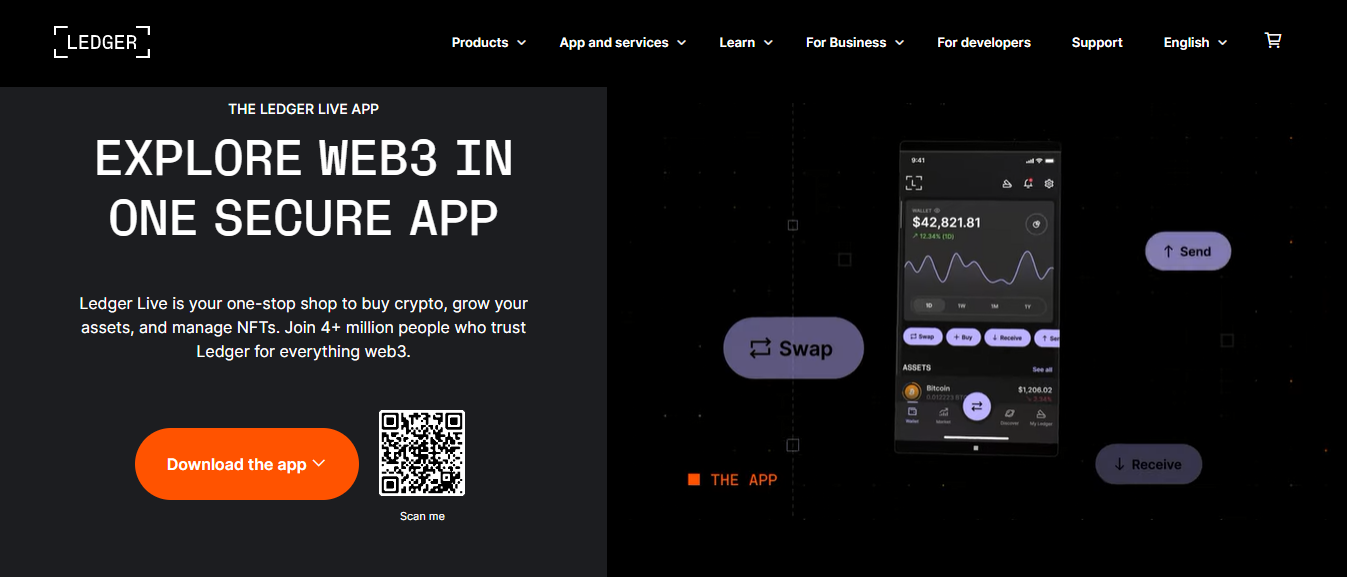
Security:
The key security advantage of Ledger Live is its interaction with Ledger hardware wallets. The private keys are kept secure on the hardware device, lowering the danger of online attacks and malware. For an added layer of security, the wallet manager also enables pass encryption.
Usability:
Ledger Live provides a full dashboard from which users may manage different cryptocurrencies, check balances, and conduct transactions. The user-friendly interface makes sending and receiving payments simple, making it accessible to even inexperienced users.
Get started with Ledger Live: ledger.com
4. MyEtherWallet (MEW):
MyEtherWallet (MEW) is a popular open-source Web3 wallet created exclusively for Ethereum. MEW provides customers with a simple yet robust interface that allows them to easily build and manage Ethereum wallets. MEW also allows users to access numerous Ethereum-based dApps and participate in token sales.
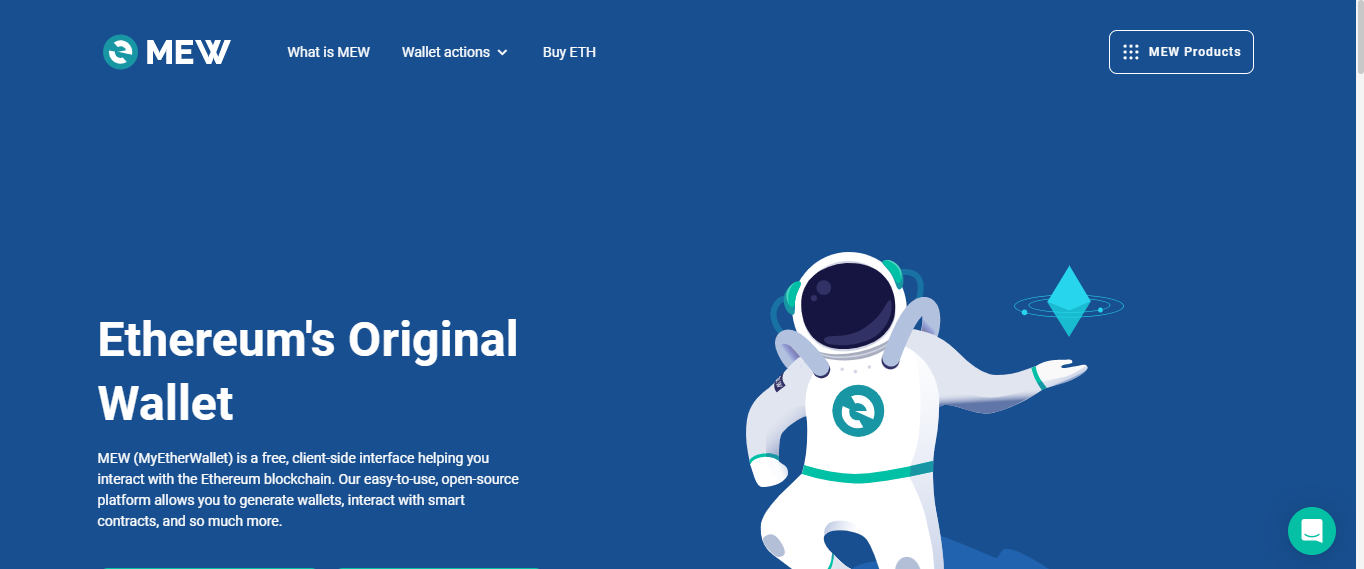
Security:
MyEtherWallet prioritizes user autonomy and security. It enables users to generate wallets offline, protecting private keys from online dangers throughout the creation process. MyEtherWallet also provides hardware wallet integration and MEWconnect, a mobile app for secure wallet access.
Usability:
MyEtherWallet has a clear and intuitive layout that makes it simple for users to navigate and complete transactions. It includes capabilities like token trading, integration with decentralized exchanges, and interaction with smart contracts. MyEtherWallet also supports several Ethereum test networks, allowing developers to test their dApps in a safe environment.
Get started with MyEtherWallet: myetherwallet.com
5. Trezor Wallet:
Trezor Wallet is a hardware wallet that is noted for its high security and focus on user privacy. It supports a variety of cryptocurrencies and gives users complete control over their private keys. The fundamental goal of Trezor Wallet is to provide an offline storage solution that protects customers’ digital assets from online threats.

Security:
Trezor Wallet’s security measures revolve around its hardware device, which securely keeps private keys offline. Transactions on the gadget require physical confirmation, making it resistant to online attacks. Trezor Wallet also connects with popular password managers, offering an extra degree of security to users’ accounts.
Usability:
The Trezor Wallet interface is simple and easy to use. The device connects to the computer via USB, and the functions of the wallet are controlled by the associated software. Users can use the wallet’s features, check balances, and initiate transactions with ease.
Get started with Trezor: trezor.io
6. Atomic Wallet:
Atomic Wallet is a Web3 wallet that accepts many cryptocurrencies and provides decentralized atomic swaps. It promises to provide users complete control over their funds while also assuring a smooth and easy experience. Atomic Wallet is offered as a desktop application and a mobile app, depending on the needs of the user.
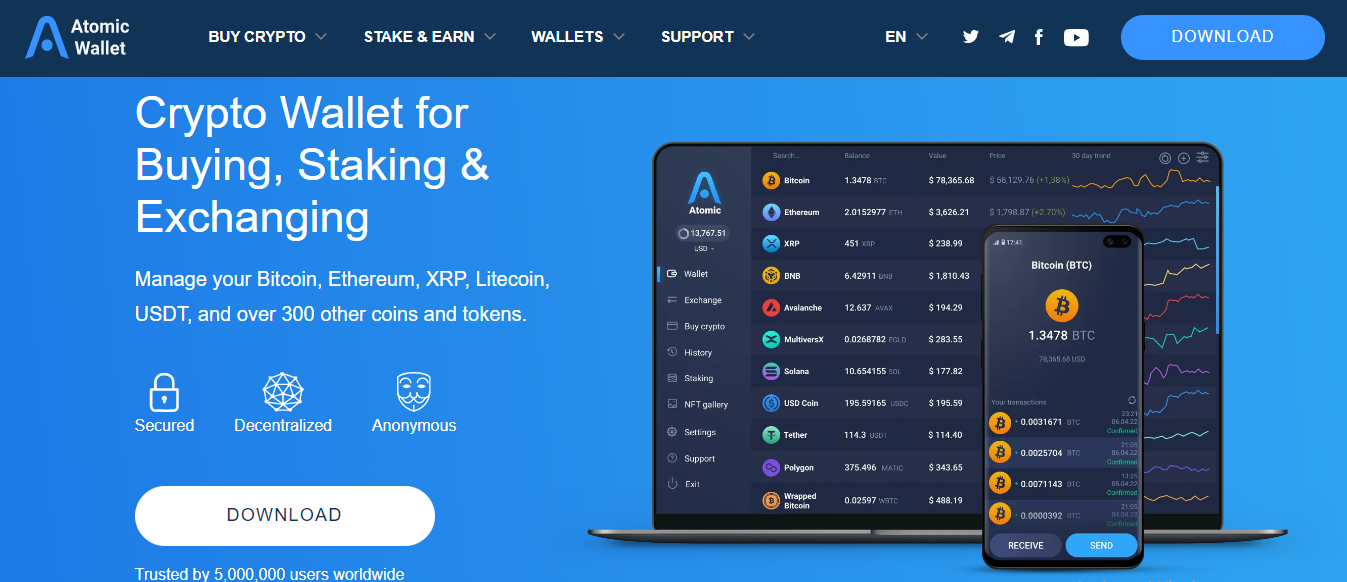
Security:
Atomic Wallet offers numerous layers of protection, such as encrypted data storage, safe backup and recovery, and an optional biometric login. Private keys are kept locally on the user’s device, reducing the possibility of online attacks. Users can also enable two-factor authentication in Atomic Wallet for added security.
Usability:
The UI of Atomic Wallet is elegant and user-friendly, giving a streamlined experience for managing numerous cryptocurrencies. The wallet includes features like in-wallet token exchanging and staking, which enable users to earn passive revenue from their digital assets. It also connects with well-known decentralized exchanges, allowing users to trade directly from their wallet.
Get started with Atomic Wallet: atomicwallet.io
Conclusion
Web3 wallets serve as essential tools in the decentralized web ecosystem, providing users with secure digital asset management and seamless interaction with decentralized applications. We investigated and analyzed various popular Web3 wallets in this post, including MetaMask, Trust Wallet, Ledger Live, MyEtherWallet, Trezor Wallet, and Atomic Wallet. Each wallet has its own set of features, security measures, and usability elements.
When selecting a Web3 wallet, it is critical to examine several elements, including security, usability, supported blockchains, dApp compatibility, and control over private keys. Users should also consider their specific requirements, such as whether they need mobile or desktop wallets, hardware wallet integration, or compatibility for specific blockchain networks.
MetaMask is a well-known and user-friendly Web3 wallet that is mostly used to access Ethereum-based dApps. Its strong security features and compatibility for numerous Ethereum test networks make it a popular choice among both developers and users. Trust Wallet is suitable for traders who want to connect with decentralized exchanges straight from their wallets due to its simplicity and compatibility with numerous blockchains.
Ledger Live in conjunction with Ledger hardware wallets, offers a secure and convenient alternative for managing digital assets across several blockchains. Because of its interaction with hardware wallets, private keys are securely maintained offline, reducing the risk of internet attacks. MyEtherWallet (MEW) is designed particularly for Ethereum users, with a simple UI that emphasizes user control and security through offline wallet development and management.
Trezor Wallet excels in security and privacy, utilizing hardware devices to store private keys offline and requiring physical confirmation for transactions. It offers broad cryptocurrency support and a user-friendly interface. Atomic Wallet, a multi-currency Web3 wallet, focuses on full user control and seamless experiences, with features such as atomic swaps, staking capabilities, and in-wallet token swapping.
By thoroughly researching and understanding the features and security measures of different Web3 wallets, users can make an informed decision that aligns with their specific requirements and preferences. The choice of a Web3 wallet should prioritize the safety of digital assets and provide a smooth and convenient experience in the decentralized web.
Web3 wallets are critical tools for users in the decentralized web environment, providing secure digital asset management and easy interaction with decentralized applications. Each of the wallets discussed in this article has its own strengths, whether it’s MetaMask’s popularity and Ethereum compatibility, Trust Wallet’s simplicity and broad blockchain support, Ledger Live’s integration with hardware wallets, MEW’s emphasis on user control and security, Trezor Wallet’s emphasis on privacy, or Atomic Wallet’s multi-currency capabilities.
Users must evaluate their needs and preferences in terms of security, usability, supported blockchains, and private key control to choose the Web3 wallet that best suits their requirements. By making an informed decision and using a reliable Web3 wallet, users can enjoy the benefits of decentralized technologies while maintaining control over their digital assets in a secure manner.
